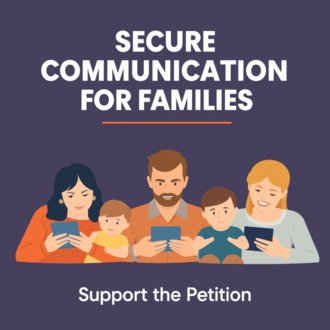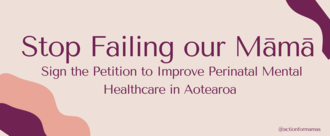-
Stop early labelling in primary school reports (2026)From 2026, primary schools will report children’s learning using national labels: Emerging · Developing · Consolidating · Proficient · Exceeding For children aged 5–7, this approach is developmentally inappropriate. Learning at this age develops unevenly, at different rates for different children, and early labels often reflect developmental readiness and support needs rather than true understanding or potential. This matters because: • Early learning is non-linear Children aged 4–7 show wide, normal variation in attention, language, memory, and self-regulation. Progress does not happen in neat stages. • The labels describe support levels, not learning ability Terms like Emerging and Developing explicitly reference the amount of support a child needs, which risks equating support needs with lower ability. • Children within the normal developmental range are labelled Many children will sit in Developing or Consolidating simply because their learning is still forming, not because they are behind. • “Developing” and “Consolidating” are easily read as deficit For whānau, these labels are easily interpreted as “not meeting expectations”, even when development is typical. • Neurodivergent children are particularly disadvantaged These children may understand concepts but struggle to demonstrate learning in standardised ways due to differences in communication, processing speed, regulation, or anxiety. • Wellbeing and confidence are affected Early labelling can undermine confidence, increase stress, and discourage children from taking learning risks. • This approach has caused harm before New Zealand previously moved away from national benchmarking systems after evidence showed they narrowed learning and negatively affected wellbeing. Early learning should focus on growth, relationships, and support, not categorising children on a national scale.13 of 100 SignaturesCreated by Kate Muir
-
A Call for Safe Air and Masking in Healthcare SettingsWe, the general public, and the undersigned clinicians, scientists, and health professionals, call for the urgent reinstatement of basic airborne-infection-control measures—clean indoor air and appropriate airborne respiratory protection —in all healthcare settings across Aotearoa, New Zealand. These are the simplest and most effective tools to prevent avoidable illness, disability, and death among both patients and staff. Since the withdrawal of SARS-CoV-2 COVID-19 mitigations, hospitals and clinics have faced relentless outbreaks of respiratory viruses. Emergency departments are routinely operating beyond safe capacity, and senior doctors have compared recent winters to “mass-casualty situations.” [1] Aotearoa New Zealand’s “vax-and-relax” strategy has failed to protect our people. 1 in 5 children infected with COVID develop long-term symptoms. [2] Nurses and doctors have among the highest global rates of Long COVID [3], and ongoing staff illness contributes to understaffing, treatment delays, and preventable deaths. There are currently no adequate systems in place to support long COVID and post-viral disease in New Zealand, and instead, patients are met with medical gaslighting and a lack of medical and social support. [4] COVID-19 causes vascular damage and damage to every organ in the body, including the brain and heart, due to its ability to target endothelial tissues. [5] It wreaks havoc on the immune system, leading to an impaired response to future immune assaults. This has led to the rise of more severe responses to other illnesses, worsening of current conditions, outbreaks of recurrent infections (including fungal and bacterial), thus increasing pressure on emergency medical services. [6] Excuses such as "immunity debt” are not scientifically substantiated; in fact, all viruses damage rather than enhance the immune system, for example, both SARS-CoV-2 and influenza at least triple the risk of heart attacks. [7] The effects of viruses have been missed, overlooked, and minimised, leading to a culture of indifference and ignorance surrounding the impacts of catching regular viruses, including in healthcare settings and a reluctance to change following the ever-growing body of research that shows viruses can cause more significant harm than first thought. We strongly believe that every person in Aotearoa New Zealand has a right to access safe healthcare without the risk of catching a deadly or disabling virus. This falls under our legal right to health, including access to timely and appropriate healthcare. Additionally, every healthcare worker has the right to a safe workplace and working conditions that support them to stay home when sick. [8] Treating airborne infection as a matter of “personal responsibility” violates these rights and undermines public trust. Critically, for the best prevention possible, fit-tested respirator masks (N95/FFP2 and N100/FFP3) must become the standard in all health care settings. Surgical masks are proven not to be effective against aerosolised respiratory viruses. [9] According to the British Occupational Hygiene Society (BOHS), it is a breach of health and safety standards to claim that surgical masks protect against inhaled hazards. Like sterile surgical gloves or seatbelts, respirators and ventilation are proven life-saving norms —not restrictions on freedom, but tools that enable freedom through safety. We respectfully urge the Ministry of Health Manatū Hauora, Te Whatu Ora Health New Zealand and the government and other regulatory bodies in charge of these regulations to implement the following evidence-based protections: 1. Use proven mitigations to prevent the spread of respiratory and other aerosol viruses at all times. 2. The return of mandatory protections for aerosolised viruses such as SARS-CoV-2 at all times, not just during a known ward outbreak, in all clinical spaces. Including visitors, staff and patients (where medically possible). 3. Respirators, i.e N95's or equivalent, not surgical masks, are to be used as the default mask practice (this is because surgical masks are not PPE for respiratory viruses.) 4. Paid sick leave and safer staffing levels so infected staff can stay home until they are no longer infectious and are well enough to safely perform their duties. 5. Return to regular COVID testing in emergency departments and wards. Including the numbers of patients and staff catching viruses like COVID-19 in hospitals, and nationally, the number of Long Covid cases and associated pathologies. 6. Mechanical ventilation and HEPA filtration in all patient-care spaces, operated at all times rather than reactively and ensure safe CO2 levels in each space. 7. Education on the importance of masking, different types of masks, their effectiveness and the proven damaging effects of COVID-19 infections. This information needs to be shared regularly with the public. 8. Increase funding, clinical care and community support for Long Covid and associated pathologies such as ME/CFS, POTS, Cognitive issues and more. (Please read the full letter for all details and recommendations) Health is a collective responsibility. Allowing uncontrolled viral spread threatens not only individual lives but the sustainability of the entire health system. By restoring clean-air standards and airborne viral protection, Aotearoa can once again lead the world in compassionate, science-based public health. A final note to anyone in healthcare, you do not need to wait for another mandate to start masking with the best tools we have to protect yourself and patients and the community today. Thank you! From Mask Up NZ in association with Aotearoa Covid Action. This petition is dedicated to Alice Wong, Leslie Lee III, and anyone who has lost their lives or had their health impacted by viral spread in a health care setting. (contact: [email protected]) References [1] https://www.stuff.co.nz/nz-news/360816342/ [2] https://doi.org/10.1111/jpc.70104 [3] https://doi.org/10.1093/occmed/kqae113 [4] https://www.rnz.co.nz/news/national/577991/ [5] https://doi.org/10.7759/cureus.9540 [6] https://whn.global/scientific/the-long-term-immune-effects-of-covid/ [7] https://doi.org/10.1161/JAHA.125.042670 [8] https://www.legislation.govt.nz/act/public/2015/0070/latest/DLM5976660.html [9] https://www.thelancet.com/journals/ebiom/article/PIIS2352-3964(24)00192-0/fulltext1,388 of 2,000 SignaturesCreated by Mask Up NZ
-
Reverse the decision to deny transgender and takatāpui young people access to puberty blockersDear Minister Simeon Brown We write to you as transgender and takatāpui young people of Aotearoa New Zealand to ask you to reconsider your decision to ban the use of puberty blockers (gonadotropin-releasing hormone analogues) by transgender young people. To be transgender or takatāpui is a taonga. To deny our young people access to life-saving medication on the basis of an imported culture war is cruel and abhorrent. Trans young people are some of our most at-risk youth. Not because of who they are, but because of how our society treats them for something they have no control over. Denying our rangatahi an effective medication that gives them the time to discover who they are is needlessly cruel. According to Counting Ourselves 2022, 77% of trans people experience high or very high psychological distress, compared to just 12% of the general population. When compared to the fact that 95% of trans youth have a positive impact on their mental health from the use of puberty blockers, how could such a vital medical intervention be ignored? This decision is an infringement on human rights and medical autonomy, as stated by Te Kāhui Tika Tangata The Human Rights Commission. Denying access to essential healthcare for trans and takatāpui youth is going to cause unnecessary harm and distress to not just young people but to their whanau as well. The fact that it is only our gender diverse youth that are denied this care, and not the general population, is clear discrimination designed to target our most vulnerable. We urge you to reconsider your decision and put our young people’s health ahead of politics. Sincerely Lauren Craig & Ngahuru Autumn Brown9,317 of 10,000 SignaturesCreated by Lauren Craig & Ngahuru Brown
-
ACC SYSTEMIC MALADMINISTRATION & MANDATORY TIMEFRAME REFORMSI care deeply about this issue because I have seen firsthand how ACC delays, lost documents, and repeated administrative failures cause real harm to ordinary New Zealanders. The image above is the beginning of our story — a child fighting for life while a system meant to protect us repeatedly failed. Our petition speaks not only for her, but for every whānau still trying to survive the consequences of ACC’s neglect. When decisions take months or years, families are left without income, without treatment, and without answers. These are not isolated mistakes — they are systemic failures affecting people from every region and every background. No New Zealander should suffer financially or emotionally because an agency did not meet its basic responsibilities. Timely decisions and clear accountability are not luxuries; they are the foundation of a fair and trustworthy public system. This reform is about ensuring that every person in Aotearoa is treated with dignity, urgency, and justice.144 of 200 SignaturesCreated by Belinda Wharehinga

-
Pause Charter-School Approvals Until Transparency & Safety Are GuaranteedOur children deserve access to safe and integrity-driven education. Right now, companies like Crimson are pushing charter schools through with almost no oversight, while making money off private tutoring. There’s already been abuse in one of their programs - a tutor with past convictions actually harmed children - and that shows the system isn’t keeping kids safe. At the same time, schools that are doing things right, like The Liger Leadership Academy, are being denied approvals. And Kelston Boys had its governance documents redacted in a way that makes it impossible to verify what actually happened. It’s not just bureaucracy - it’s about who gets to shape education for every kid in NZ. If Parliament doesn’t pause and review this properly, we’re basically giving public money and control to private interests with no accountability. That’s why I’m pushing this petition: it’s about safety, fairness, and protecting public education for everyone.1,900 of 2,000 SignaturesCreated by Brie Anglesey
-
Save our State Housing in Ōtautahi/ Reverse the cutsEveryone in Aotearoa deserves to be housed; this is a basic human right. People should have agency over their housing, and it should be designed to be fully accessible. This would strengthen communities in Ōtautahi, as people will be able to put down roots and build connection. It will support our whānau to thrive, and provide the stability needed for a thriving city where everyone can live a decent life. Successive governments have failed to ensure everyone in our community has suitable housing or any housing at all. Now, the National-led Government has cancelled Kāinga Ora developments, plan to sell off state housing and make it less available to our communities. This will lead to more people living in unaffordable and unsuitable private rentals, in their cars and on the streets. It also means that state-owned land will be privatised that should otherwise be returned to hapū and iwi for Māori housing solutions. In Ōtautahi we have: - 1500+ households on the Housing Register - 6753+ people experiencing Severe Housing Deprivation (homelessness) *Census 2023 (grown since data was collected) And still, this National-led government has decided to cancel 25 developments, 373 homes that were in the pipeline, that would've housed whānau in need in Ōtautahi. They are also selling state homes to the private market The Government says it is supporting Community Housing Providers (CHPs) to play a bigger role in social housing provision, yet it expects to fund only 70 new CHP homes in Ōtautahi by 2027, and only four have been delivered so far. We know from our own history and from overseas research, that when governments play a bigger role in providing decent and suitable housing, we as a country lay the foundation for thriving communities. We have built state housing at scale as a solution before, and we can do it again. The people of Ōtautahi who are living without shelter or safe and affordable homes need our community to stand in solidarity to save our state housing. We need all 373 Kaianga Ora houses to be built. We are calling on Minister for Housing, Chris Bishop; Minister for Māori Development, Tama Potaka; MP for Ilam, Hamish Campbell; MP for Christchurch Central, Duncan Webb; MP for Christchurch East, Reuben Davidson; MP for Banks Peninsula, Vanessa Weenink; MP for Wigram, Megan Woods to advocate for the people of our communities to ensure that everyone has a decent, stable and accessible home, and to stop the sell off.39 of 100 SignaturesCreated by Save Our State Housing Ōtautahi
-
Deliver on your promise: A new single Redress Agency for survivors of abuse in care!We all want Aotearoa New Zealand to be a place where everyone can thrive. Certainly a place where survivors of abuse in State Care and in the Care of Faith-based Institutions can thrive. We know that what has happened to the estimated 250,000 vulnerable adults, children, and babies is a “national disgrace” according to Judge Coral Shaw, former Chair of the Abuse in Care Royal Commision of Inquiry. The Abuse in Care Royal Commission of Inquiry’s Final Report, Whanaketia: Through pain and trauma, from darkness to light, was very clear: “"As an immediate priority, the government and faith-based institutions should implement the 95 recommendations in the Inquiry’s interim report on redress, He Purapura Ora, he Māra Tipu: From Redress to Puretumu Torowhānui (2021), together with the recommendations of the design group, subject to any further recommendations made in this report." [1]” The Interim Report, He Purapura Ora, he Māra Tipu from Redress to Puretumu Torowhānui, has 95 Holistic Recommendations to improve the current redress systems (Ministry of Social Development, Ministry of Health, Oranga Tamariki - Ministry for Children and Ministry of Education) for survivors of abuse in care [2]. Summary of the redress recommendations are: • expansion of oranga, or wellbeing, services and support services for survivors and their whānau; • increased financial payments for survivors; • training for those working with survivors; • enactment of a right to be free from abuse in care, as well as a duty to protect this right; • an exception to accident compensation legislation; • improvements to the handling of survivors’ requests for records, including as few redactions of survivors’ records as possible; and, • a review of record-creation and record-keeping practices. On the 12th of November 2024, the Prime Minister, RT Hon. Christopher Luxon, finally and formally apologized to survivors of abuse in State and Faith-based care. He apologized to survivors for the horrific and harrowing abuse they have experienced while in care, he apologized to their family and whānau and he outlined some steps that the Government will take to address the Final Report of the Inquiry. He said: “"But I want to assure you it is our intention to have a new single redress system operating next year." [3]” On the 9th of May 2025, the Lead Coordination Minister, Hon. Erica Stanford announced changes to the redress system for abuse in care survivors. She announced: • Increasing the average redress payments for new claims from $19,180 to $30,000; • Providing for higher payments for the survivors who experienced the most egregious abuse; • Providing “top up” payments of 50% to survivors who have already settled claims to ensure consistency with increased payments for new claims; • Introducing a common payments framework so that survivors receive the same financial redress for similar experiences of abuse, regardless of where in state care that abuse occurred; • Increase system capacity to process claims from 1,350 to 2,150 per year from 2027 to reduce wait times for current claimants; • Implementing a seamless service so that survivors with claims with multiple agencies have those claims managed by one point of contact; • Introducing a single-entry point for survivors wanting to register new claims; • Introducing an independent review for people who are unhappy with their redress offer; and • Funding for redress agencies to provide survivors with access to supports and services. She said: ““I acknowledge that a key recommendation of both the Royal Commission and the Redress Design Group was for a new independent redress entity. “The Government was faced with a difficult choice: do we spend more time and money on setting up a new scheme, or do we provide more to survivors now through the current redress process? “For Budget 25 we have prioritised improving the current system as quickly as possible for survivors and investing in changes that have a direct impact for them." [4]” To date, the Government has only implemented 28 of the 135 recommendations from the Abuse in Care Inquiry that relate to the Government. [6] These reports from the inquiry shed light on the harrowing and horrific experiences that survivors faced while in the care of the state and faith-based institutions, and emphasise the profound impact that abuse has had on survivors’ lives. Now is the time for action: for people across Aotearoa to come together and be part of the process that ensures that survivors in Aotearoa can thrive. By signing this petition, you are standing up for the rights of survivors and sending a clear message to the Crown: They have a duty of care to survivors, and a duty to implement a new single redress agency and implement all of the recommendations from the Abuse in Care Royal Commission of Inquiry. Together, let's ensure that survivors are supported. Join us in this crucial fight by signing the petition today and spreading the word to your friends, family, and community. Together, we can make a difference and safeguard the future of care and help survivors of abuse in State and Faith-based Care to thrive. _________ References: 1 - https://www.abuseincare.org.nz/reports/whanaketia 2 - https://www.abuseincare.org.nz/reports/from-redress-to-puretumu/ 3 - https://www.1news.co.nz/2024/11/12/full-text-of-prime-ministers-apology-for-abuse-in-care/ 4 - https://www.beehive.govt.nz/release/budget-2025-invests-care-system-and-improving-redress-survivors-abuse-state-care 5 - https://www.abuseinquiryresponse.govt.nz/assets/Uploads/Proactive-release/Putahi-te-mauri-he-wai-ora-e-Redress-design-proposals-1.pdf 6 - https://www.abuseinquiryresponse.govt.nz/about-us/official-information/information-releases/cabinet-papers-and-minutes/proactive-release-of-decisions-about-the-governments-response1,179 of 2,000 SignaturesCreated by Ihorangi Reweti Peters

-
Aotearoa's Pool Players Deserve Better: Remove NZPACue sports in Aotearoa should be games of skill, fairness, and community. When a governing body fails to protect players’ rights, ensure due process, and foster a positive culture, the whole sport suffers. Our players and these sports deserve leadership that upholds integrity, fairness, respect; leadership that wants the best for the sport and celebrates competition among players The NZPA has consistently mishandled disputes, disciplinary matters, and player relationships. Previous board members that have left due to complaints continue to have an unreasonable presence and strong influence over the NZPA. Players are subjected to unfair suspensions, bans, accusations without evidence, and inconsistent disciplinary processes. Those in positions of power have refused to recognise conflict and have behaved unethically and contrary to the rules they are obliged by. When players ask them to behave ethically and in accordance with the rules, they are targeted and removed from the association or its events. This has harmed the wellbeing of players, undermined trust, impacted the quality and progress of players and damaged the reputation of the sport nationally and internationally. Complaints include: • Suspensions and bans handed down without transparent processes or clear evidence. • Accusations of bullying, intimidation, and unfair treatment. • Lack of trust and confidence from top players and clubs. • A culture of fear, division, and exclusion rather than support and growth. • There are complaints against NZPA with the appropriate authorities Instead of protecting and promoting the sport, the current leadership has damaged its credibility. Many excellent players refuse to be part of NZPA; many venues will not host NZPA events and upcoming players are warned against them. This is destroying cue sports within and for our country. By signing, you are sending a clear message that players, clubs, and communities will no longer accept poor governance and unfair treatment. A strong public voice makes it harder for decision-makers to ignore the issues. Your support will help push for change, restore fairness, and give cue sports in Aotearoa, New Zealand the chance to thrive under leadership that players can trust. Together, we can protect the integrity of the game and the mana of those who play it. Te Karere Denied the opportunity to represent her country NZ Herald Denise Wilkinson's suspension NZ Herald Turmoil in NZ's pool community499 of 500 Signatures
-
No More Risk, Safe Ways For Families To Stay In TouchWe want a New Zealand where families of people in custody can stay connected safely, without fear, and where tamariki (children) continue to have meaningful contact with their parents. A world where incarceration does not unnecessarily harm children or whānau, and where rehabilitation is supported by strong family bonds. Currently, families often must provide their personal residential addresses to maintain contact with loved ones in prison. This creates significant safety and privacy risks, especially for caregivers and children. Many families are reluctant to communicate regularly because of these risks, leaving children isolated from their parent, and weakening family support structures that are proven to help reduce reoffending. This situation disproportionately affects vulnerable families, creating inequity and stress. For children, inconsistent or unsafe contact with a parent can have lasting emotional and social impacts, including anxiety, disrupted attachment, and increased risk of poor outcomes in education and wellbeing. Research consistently shows that maintaining strong family connections during incarceration: • Reduces recidivism: children and families can be a protective factor supporting rehabilitation.[1] • Supports tamariki wellbeing: consistent contact with a parent fosters emotional stability and resilience.[2,3] • Promotes fairness and equity: no family should have to risk safety to stay in touch. Currently, the lack of a secure, monitored communication platform prevents New Zealand from realizing these benefits. Families must choose between safety and contact, an impossible choice that can harm both parent and child. Implementing a secure electronic communication system: • Allows families to communicate safely without sharing private addresses. • Provides a child-focused option, letting tamariki exchange messages, drawings, or school updates safely. • Supports rehabilitation for people in custody by strengthening family bonds. • Reduces stress and safety risks for caregivers, improving overall family wellbeing. This issue needs to be addressed NOW because children are currently missing out on consistent contact with their parents, and families continue to face unnecessary risk. Modern secure communication systems exist internationally and could be adapted for Aotearoa, making this solution both feasible and timely.[4] References & Supporting Facts: [1] Reducing Re-offending (Corrections NZ): https://www.corrections.govt.nz/resources/strategic_reports/corrections_strategic_plans/creating_lasting_change_2011_-_2016_YR3/reducing_re-offending [2] Murray, J., & Murray, L. (2010). Parental incarceration, attachment and child outcomes.https://www.tandfonline.com/doi/abs/10.1080/14751790903416889 [3] Bowlby, J. (1988). A Secure Base: Parent-Child Attachment and Healthy Human Development.https://www.increaseproject.eu/images/DOWNLOADS/IO2/HU/CURR_M4-A13_Bowlby_(EN-only)_20170920_HU_final.pdf [4]Secure Video Calls with Prisoners - GOV.UK: https://www.gov.uk/guidance/visit-a-prisoner-using-a-video-call59 of 100 SignaturesCreated by Tania Topia
-
Say YES to “Access” #YesToAccessNZ | Words shape worldsWhy this matters ““Commit to replacing ‘inclusion’ with ‘access’ on 3 December. Maybe it sticks. Maybe it doesn’t. Maybe it’s the first step toward a more equitable Aotearoa.” Access is a right, not an invite. That’s why. ” 3 December 2025 is International Day of Persons with Disabilities and is the perfect moment to flip the script, start with words, and build the access-first Aotearoa we all deserve. Words shape worlds Did you know? “Inclusion” comes from the Latin includere - in (“into”) + cludere (“to shut, close off”). To include means to be invited into something that was closed to you. You’re still outside - until someone lets you in. Access, from accessus, means “to enter or pass through without barrier.” Not by permission. By right. “Inclusion is margarine. Access is the real butter.” You’ve grown up with “inclusion” as the go-to word. It’s soft. It’s comfortable. It’s on someone else’s terms. There are gatekeepers who “let you in,” “add you in,” “invite you in.” Access is hard - but worth it. It means building places, spaces, and systems from the start—not retrofitting after the fact. It means disabled people aren’t guests. We’re already here and leading. Why Access? In a world where Access is the starting point, not the add-on: • Disabled people live lives of substance, not subsistence • Every space—physical, digital, cultural, political—is designed barrier-free, with disabled people shaping the decisions that affect us • Access is built in: to homes, schools, workplaces, marae, theatres, cities • We are Diversity, not Deficit • We are experts in our own lives, not exceptions to be managed • We inhabit time and space with equity, not as invitees to worlds not made for us • Our identities - not labels - are seen. Our ways of being are sources of insight, not problems to fix This isn’t a dream. It’s the Aotearoa we can build when Access comes first. This isn’t just about ramps and captions Access is multi-dimensional: physical, cultural, emotional, financial, spiritual, intellectual, collective, and individual. Swapping “inclusion” for “access” reframes disability not as a problem to accommodate, but as a matter of rights, design, and justice. “When we say “inclusion,” exclusion still wins. If you can be “included,” you were already excluded. Access, once embedded, cannot be denied. ” Swapping “inclusion” for “access” is more than a language fix. It's an entire mindset shift. What’s the difference? A real life example from what we know - the arts. An 8 - 10 performance season might offer: • 2 sign-language interpreted shows • 1 audio-described show • Wheelchair seating for 4 people per show That’s Inclusion - a few seats at someone else’s table. On their time, Now imagine: • Every performance is NZSL interpreted and audio described • The venue adapts seating in real time for wheelchair users That’s Access - designed with us, led by us, from the very beginning. Inclusion is soft, almost easy, and on someone else's terms, there are decision makers, gatekeepers who 'let' you in, add you in, 'invite' you in. Access is hard, but it means you actively make the effort to build the places, spaces and societies for all from the very start, not accommodate after by invite only. The ask On 3 December 2025, swap “Inclusion” for “Access” in: • Official communications • Policies • Job titles • Public events Witness what shifts. Maybe it sticks. Maybe it doesn’t. But it might just be the spark. We say yes to Access - every day. You can too - even if it’s just for one day. Just like these artists and allies here at this link: Yes to Access. This campaign is disability-led, conceived over two years by disabled artists, researchers and creators with Touch Compass, and supported by allies across Aotearoa. ✊🏽 Words shape worlds. Swap the word. Shift the world. Sign the petition. Share it! #YesToAccessNZ784 of 800 SignaturesCreated by Touch Compass Aotearoa New Zealand

-
Support state housing in West AucklandWest Auckland should be a place where everyone has a decent, healthy, stable and suitable home, in a community where children can grow up in their local schools and where people can put down roots near the services they need to thrive. But right now, people in our community are experiencing high rents, homelessness, overcrowding and substandard housing. This is having an impact on people's long-term wellbeing and the wellbeing of our communities. Successive governments have not done enough to make sure everyone in our community has suitable housing. Now, the current Coalition Government has cancelled hundreds of Kāinga Ora homes, is selling off state housing and making it less available to people in our community. In the West Auckland area we have: • 1,224 households on the Housing Register in (September 2025) • 7,524 people experiencing Severe Housing Deprivation (homelessness) at the time of Census 2023. This is likely to have grown since the Emergency Housing rules have put up barriers to access temporary shelter. • And still, the Government has decided to cancel 12 Kāinga Ora developments that would have provided 425 decent and stable homes to people in our communities. • Some of these cancelled developments are on land that once had state housing and families living there, forced out on the promise of more homes and a right to return back to their communities. Some of these cancelled developments are on land Kāinga Ora purchased to make way for much needed homes close to train stations, parks and local amenities. State housing is a key solution to the housing crisis facing people living in West Auckland. It is the key way governments ensure people and whānau, no matter their income, age or stage in life, have a place to call home. By cancelling state housing, more people and families will be forced into unaffordable private rentals, unsuitable boarding houses and onto the streets. It also means that land will be privatised that could otherwise be returned to hapū and iwi for Māori housing solutions. We are calling on our local MPs to advocate for state housing in our community - to stop state housing land being sold off to investors and developers, and to ensure everyone in West Auckland has decent and stable housing. Cancelled Kāinga Ora developments: • Beauchamp Dr & Reverie Pl, Massey - 65 homes • Totara Ave, New Lynn - 84 homes • Elm St & Racecourse Parade, Avondale - 139 homes • Vallance Pl, Massey - 13 homes • Cedar Heights Ave, Massey - 8 homes • Tabitha Cres, Henderson - 4 homes • Sachel Pl, Rānui - 3 homes (sold) • MacKenzie St, Te Atatū South - 3 homes • Te Atatū Rd - 3 homes • Valonia St, New Windsor - 3 homes • Ulster St, Blockhouse Bay - 32 homes • Marlowe Rd & Bolton St - 68 homes151 of 200 SignaturesCreated by State Housing Action West Auckland
-
Stop Failing our Māmā: Improve Perinatal Mental Health Services in AotearoaWith the repealing and replacing of the Mental Health Act currently taking place, now is the time to get this important issue in front of decision makers to ensure provisions are in place in the new legislation to ensure better outcomes for mothers who suffer from a perinatal mental illness. ⚠️ The Issues: • Capability of perinatal mental health services. Currently, there is a significant shortage of resources, leading to a reactive, crisis-driven approach where individuals often only receive help when they are in urgent need, much like an 'ambulance at the bottom of the cliff' response. This results in many not getting the proactive and voluntary care they require until it's too late, and thus results in compulsory treatment orders, or worst case scenario, tragic outcomes. • Lack of Specialised Care: Current mental health services are insufficiently equipped to support postpartum women, particularly in general psychiatric wards that fail to address the specific needs of mothers. • Trauma of Separation: The separation of mothers from their newborn babies during such a vulnerable time is profoundly damaging to both the mother and the child, exacerbating mental health struggles and hindering recovery. • Need for Accessible Mother and Baby Units: There is an urgent need for mother and baby units that are accessible to all women (including in the regional areas) that would allow mothers experiencing postpartum mental illness to receive the care they need while remaining with their infants, promoting healing and the vital mother-child bond. 💬 Why is this issue important to me? In 2022, after a complicated pregnancy and birth, I unfortunately developed an acute postpartum mental illness. Despite seeking help voluntarily (which included a declined referral to Maternal Mental Health whilst pregnant, requests for support while becoming unwell in hospital postpartum, and two subsequent visits to the Emergency Department where I was sent home), I was eventually sectioned under the Mental Health Act (1992), and separated from my son just three weeks postpartum. I was placed in the general psychiatric ward in Tauranga, a space that was terrifying, unsafe, and not suitable for a new mother experiencing a postpartum mental illness and recovering from childbirth. The experience left me traumatised, with symptoms of PTSD and severe depression for the first two years of my son’s life. Through my advocacy, I’ve since learned that many others have faced similar trauma due to systemic gaps in perinatal mental healthcare. The lack of specialised support has long-lasting impacts, not only on the mother and baby, but also fathers, and the wider whānau. In 2023, around the time of my son’s first birthday, I wrote to the hospital and public health services to genuinely engage about the issues I faced and suggest areas for improvement. My concerns were dismissed. This led to a decline in my mental health and forced me to step back. But in 2024, I read about the Mental Health Bill (the legislative reform of our Mental Health Act) in the Mental Health Foundation’s newsletter – and decided that this was the right time to speak out, while the issue was on the agenda for decision-makers. I made a written submission on the Mental Health Bill in December 2024, and delivered an oral submission to the Health Committee in February 2025. In May, I started an advocacy page on Instagram called @actionformamas. This is where I raise awareness and share content to help break the stigma of perinatal mental illness, including postpartum psychosis, which is a terrifying yet highly treatable perinatal mental illness that carries a lot of stigma and shame. This illness is what I experienced after the birth of my son. ✅ The Solutions • Provide proactive, compassionate, culturally appropriate, and specialist care for women who experience severe perinatal mental illness • Prevent traumatic separations, supporting recovery and bonding between māmā and pēpi • Ensure appropriate and sufficient services are in place to improve mental health outcomes for whānau across Aotearoa By improving perinatal mental health services and funding dedicated mother and baby units, we can ensure that no mother is forced to endure the traumatic separation from their newborn or face inadequate care in a general psychiatric ward. This is essential for the well-being of both mothers and their babies, and it is a necessary step in improving mental health care for all New Zealanders. ✍️ Add your name to support this change. Together, we can stop the trauma and start healing. No māmā should be left behind.1,273 of 2,000 SignaturesCreated by Kristy Maguire











.png)
